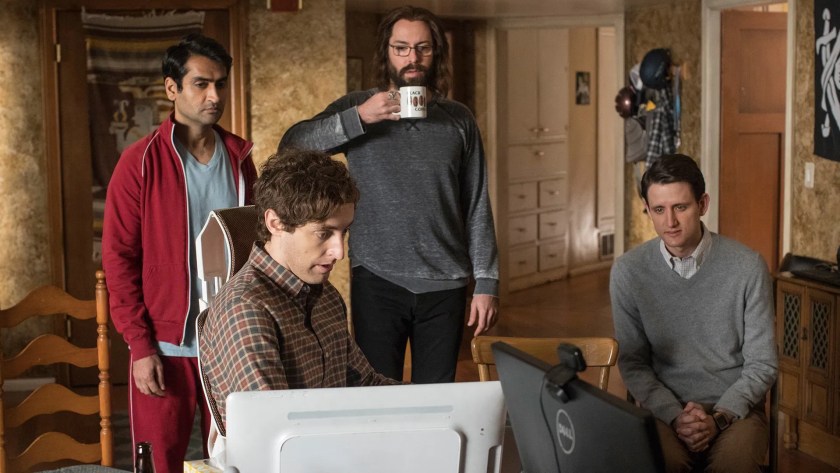
Decentralise or Decentralize that is always a question I have… Of course being British, the first one is correct (I joke!)
Its fair to say I have been thinking about decentralisation quite a lot recently, but its not the first time. Conversations with Adewale has always got me thinking about this all.
Partly due to Mozfest/Mozretreat this year and thinking about it in terms of power structures; which I’ll explain more in another blog post soon. But I found a number of interesting points about decentralisation which I thought I’d share….
I’ve been thinking about the differences between Centralised, Decentralisation, Distributed and Federated; as I joined Mastodon and thought a lot about Jabber, Status.net and Laconica. Can the user the experience be better than the centralised services? Theres potential but is the will there?
Kevin Marks shared a link to a piece about Silicon Valley series 4 and how the main character Richard is interested in building a more decentralised internet.
In the first episode of the new season (Season 4) of HBO’s Silicon Valley, beleaguered entrepreneur Richard Hendricks, asked by eccentric venture capitalist Russ Hanneman, what, given unlimited time and resources, he would want to build.
“A new Internet,” says Hendricks.
“Why?” asks Hanneman.
Hendricks babbles about telescopes and the moon landing and calculators and the massive computing power in phones today, and says: “What if we used all those phones to build a massive network?… We use my compression algorithm to make everything small and efficient, to move things around…. If we could do it, we could build a completely decentralized version of our current Internet with no firewalls, no tolls, no government regulation, no spying. Information would be totally free in every sense of the word.”
Hel-lo! Decentralized Internet? That’s a concept I’ve heard bubbling around the tech world for a while now, but not so much in the consciousness of the general public. Is HBO’s Silicon Valley about to take the push for a Decentralized Web mainstream?
Of course decentralisation isn’t a panacea and shifting the power from a centralised power comes with roles and lots more responsibility. It also relies on correctly informed citizens. This is why the distributed and federated models are much more interesting in my mind…
A couple people mentioned Brexit is a type of decentraisation, and I guess it is but further encourages thoughts about distributed and federated. Manchester recently got its first Mayor because of the Cities and Local Government Devolution Act 2016 which is a type of decentralisation I guess.
Its clear the internet could do with less centralisation but unless its as good or better a experience for people; why would they switch? That warm fuzzy feeling is powerful but not strong enough, you only have to look at the wake of decentralised social networks to see evidence of this.
People’s enthusiasm for federated decentralised $WHATEVER seems inversely proportional to the practicality of their plan for achieving it
And thats just the developers, goodness knows what the users enthusiasm levels are like? Surely one day it will just work and users won’t even know its been built that way.
Dare I mention my thoughts about distributed online dating? Imagine that!

The web is decentralized by design (mostly!) – it’s the business models that have forced it into a ‘centralized’ shape against its original shape. TimBL saw browsers as being as much an editor of web content as a viewer – we’re now twisted into editing content using a web viewer on a server owned by a huge company.
So as soon as there’s real money in creating open, de-centralized services, that’s what’ll happen. I can’t see that happening soon but maybe there’s a way.
Maybe helping people to understand the value of paying for services rather than giving up their data/privacy would be a good first step? In a de-centralized world, somebody still has to pay for bandwidth…
Sounds like you should join us Jon on the Mozfest group about decentralisation…!